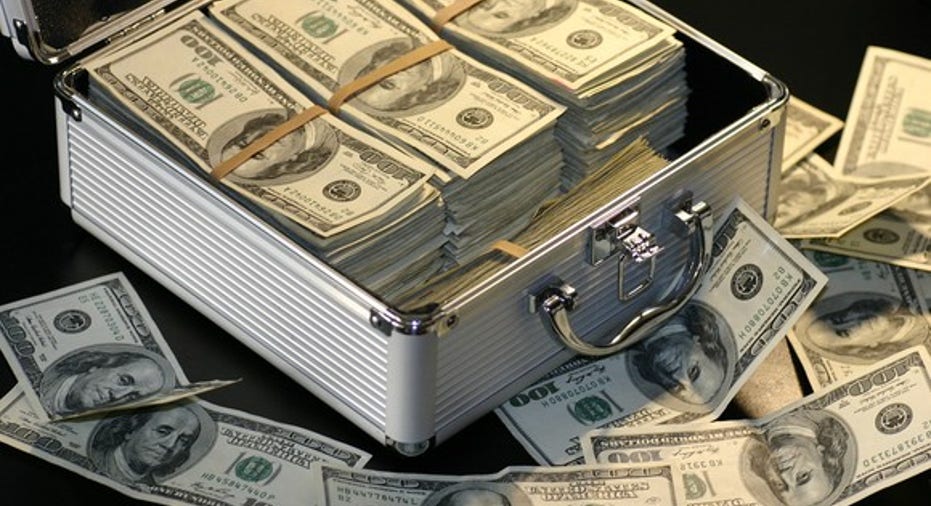Why a Big Tax Refund Is Bad for You

IMAGE SOURCE: PIXABAY.
Most people think of receiving a big refund check as a financial bonanza. Suddenly having a wad of cash to spend feels great, doesn't it? There's just one problem: That's your cash that the federal government took from you --the excess that it didn't need to collect in the first place -- and is now returning to you after holding on to it for several months. Doesn't sound so good now, does it?
The one and only benefit to having a large tax refund is that it forces you to save. But there are two big problems with that. First, when you get the money back, there's a good chance you'll spend it right away (so much for the saving idea), and second, the government doesn't pay you a cent of interest while it's holding your money hostage. There are a lot of better ways to save painlessly, and they all come with somechance of growing your savings as well.
How to keep your money in your own hands
First, you'll need to change your tax withholding status so that you don't have extra money sucked out of your paycheck. In a perfect world, you'd want to set your withholding rate so that your tax bill in April comes to exactly $0. Of course, in this imperfect world it's not likely that you'll get it to exactly $0, but it's definitely possible to come close enough that you only owe or get repaid a few dollars in federal taxes.
For starters, you can change your tax withholding rate by updating the W-4 form on file with your employer. The IRS Withholding Calculator can help you figure out how many exemptions to claim on your W-4 to get your withheld taxes just right. You can also ask your employer for a copy of your current W-4 to see how many exemptions you have now, which will give you an idea of how many exemptions you should have. The more exemptions on your W-4, the less money your employer will take out for taxes from your paychecks. So if you're getting a huge refund now, try adding one or more exemptions to cut back on those extra taxes you're paying.
Once you've added those exemptions, you'll see your amount of withheld taxes drop on your next paycheck stub. You can now take that extra money that's not getting yanked from your paycheck and do something with it that will make you more money. And because you're used to never seeing that money at all, you won't even notice the difference in your budget.
What to do with that freed-up cash
So what should you do with those extra few dollars? If you don't have an emergency savings account, that would be a good place to start. Aim to save three to six months' worth of expenses in an account you can easily access in the event of a sudden financial emergency, e.g., a car breakdown or a job loss. To make things easier on yourself, try to automate your savings. Most banks will let you set up an automatic transfer from your checking account to a savings account; this helps you squirrel the money away without ever being tempted to spend it. Even better, if you have your paycheck direct-deposited, you can ask your employer to split the deposit so that the newly available money goes straight into savings.
Another great option is to put that extra bit of cash into a retirement account. If your employer has a 401(k) plan, you can usually have the money deposited straight into it. The beauty of this system is that the money comes out of your pre-tax wages, so you'll save a little money up front by having less tax taken out of each paycheck. And if your employer makes matching contributions, that's even more free money coming to you as a result.
If you don't have a 401(k) or other employer-sponsored retirement plan, you can go to plan B: an IRA. You'll have to make contributions out of post-tax dollars, but on the other hand, you get to deduct those contributions when preparing your tax return for the year -- so it works out to roughly the same thing. Many IRAs let you set up an automatic contribution plan straight out of your bank account, so it's also a set-and-forget savings option for you.
Breaking the big-refund habit can be tough at first, but if you can go cold turkey, you'll soon have your reward in the growing balances of your savings and retirement accounts, the comfort of knowing you have money set aside for the future, and the satisfaction of having other people giving you money in the form of interest and matching contributions. Sorry, IRS -- we have better uses for our money.
The $15,834 Social Security bonus most retirees completely overlook If you're like most Americans, you're a few years (or more) behind on your retirement savings. But a handful of little-known "Social Security secrets" could help ensure a boost in your retirement income. For example: one easy trick could pay you as much as $15,834 more... each year! Once you learn how to maximize your Social Security benefits, we think you could retire confidently with the peace of mind we're all after.Simply click here to discover how to learn more about these strategies.
The Motley Fool has a disclosure policy.



















